in-conversation
in conversation with Mau from Nowhere
by Debbie Misati
August 08, 2025
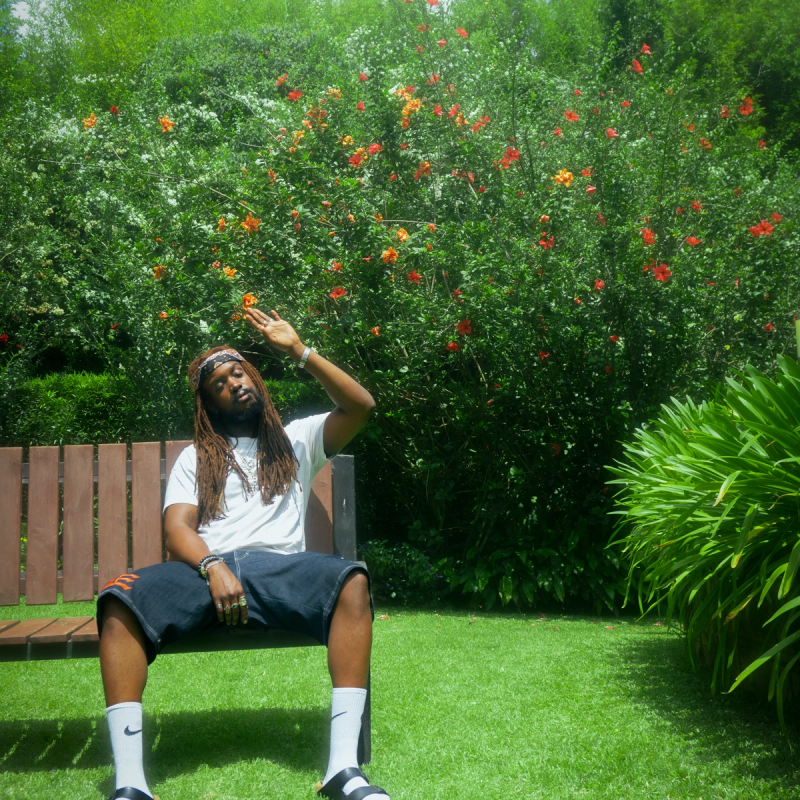
in-conversation
August 08, 2025

In our interview Mau reflects on his layered journey as an artist from here,from London and from the Netherlands and how it shaped his artistic identity. We dive into his self producing journey and the alchemy of his creative partnership with Theo(HiHi) and the stories behind latest singles like What's All This Then from their recent album PRESSURE .
The album is a sonic journey from the opening track, Here we go again where Mau delivers raps that feel as if they have been sculpted in tension. To my personal favourites Let it Pass featuring Maya which gives off the vibe of a lyrical bid of vulnerability an expression of allowing discomfort, sitting in it and having an emotional release and secondly a_m_h which is quite the collaboration with featuring a variety of Nairobi sounds like N’jiru, Kalemela, Kay Khali, Leroy Okwiri and Basic City which is a proper spotlight of the vibrant up and coming musical scene in Kenya.
Debbie: First question, the name Mau from nowhere gives me such liminal, mystery vibes. What's the inspiration behind the name and how does it still stand true to your upcoming album?
Mau: The name originally started out as a joke. I was talking to a friend once when I was living in New York and I used to go by Mau. First, it was Mau with the kikuyu letter and it was really hard to find me on streaming so we changed it to just Mau but it was still proving tough to cut through.
I was thinking about what to change it to and artists I like who tend to have a bit of a, I don't know if it's always an epithet, but like a little bit of an added thing. Chance the Rapper or Little Simz for example. Something that can add a little bit to the story. My friend mentioned that I’m from Kenya but also grew up in the UK and in the Netherlands. Like with all this movement, you're not really from anywhere, so like, you're from nowhere.
I talked to my manager at the time and she was just like, oh yeah, that kind of goes. So we just tried it out for my first EP and it stuck. It's a weird thing now where I feel like there's less of me. Nowhere kind of felt like this freeing thing. I think I used to obsess quite a lot growing up about, you know, where I was from and what that said about me and and looking for answers in the past, which you know can be a big trap.
In terms of myself now and this project, it is really about making peace with whatever confusion exists in the past and kind of moving forward. That's sort of how I see it. Like even the project that's coming up, released on 31 July 2025, has me processing difficult things that happened over the last year. I'd say 2023 to 2024 but in real time, you know, I was just like everything was happening. I had no choice but to try and make sense of it.
A lot of those things aren't necessarily as present now and in the spirit of honesty with myself and with the music, I had to surrender to whatever else I was feeling and to whatever was happening around me and I think that the ‘from nowhere’ in a way is sort of like the past is history. My mum likes to joke that it's nowhere like you're now-here. And I was like, you know what, yeah.
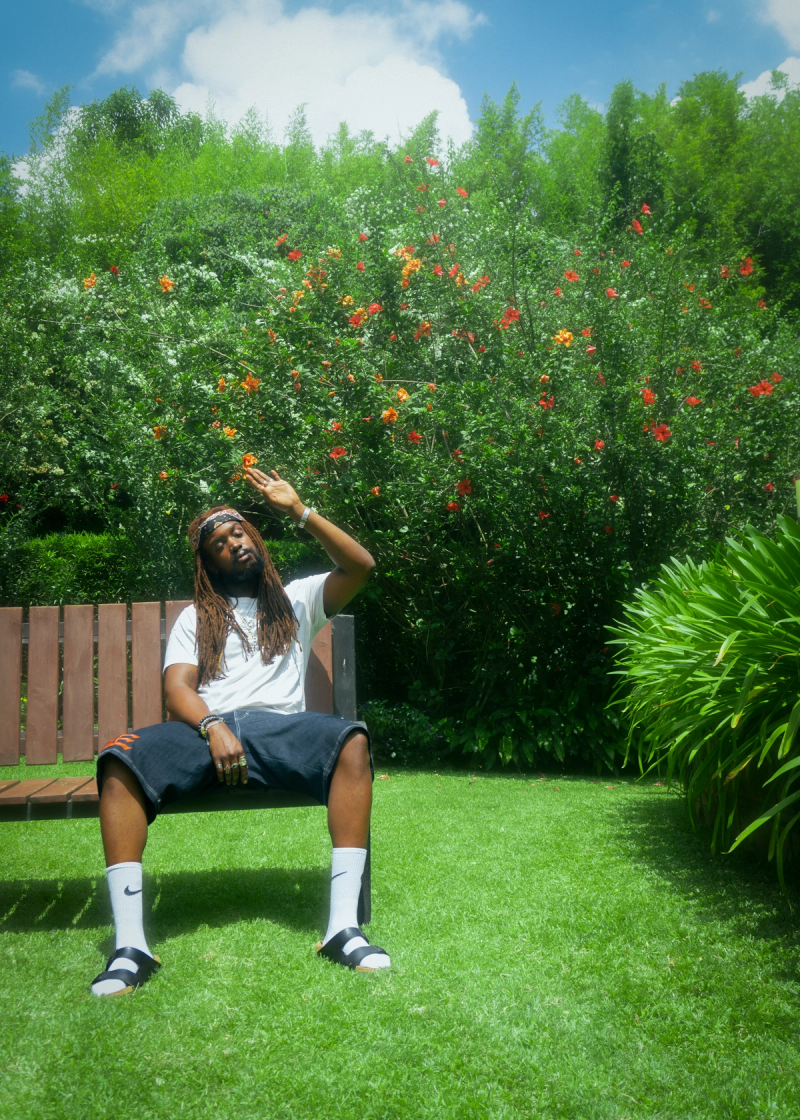
Debbie: That's very insightful. So you're not just a rapper and an artist, you've been producing as well. There’s this playful, haunting presence to your new music especially when it comes to your vocals. How has that journey been?
Mau: I have been rapping and writing songs since I was a teenager but when I first started releasing music, I started out self-produced, mainly because honestly, like I didn't have anyone I was working with but also … I was curious, you know. I was so curious to see what it looks like to create this thing from nothing.
It's just like with film and photography and all the other avenues where you start with an idea, craft it and then go shoot it. Music to me is the most abstract thing because words can't fully describe everything that you're hearing. In the same way, like, when I was producing, it felt more freeing and creative than writing. You hear and craft sounds that speak to your soul but can’t necessarily put a word or image to it.
It's like when I play a key or a chord, whatever it makes me feel is just that and I think that's why it was really about playing around. I think that was where I really got into the playful side of things because I was getting started and I thought that I couldn't like the music I made because it didn’t sound like my favorite artist. Also, I had just started but also because I'm my own self and it was sounding weird and interesting in a way and until I clocked that, oh, it's a good thing that it's weird. It's not gonna make sense to everyone but if it speaks to my soul, then that's what matters.
So it's been super liberating to have had many years to refine that and now work with a producer, for the first time really. Like working consistently with one producer, because I’ve rapped on my friend's beats, I had done some other artists. I've had a couple of songs where producers have either helped me or produced, like the first song that someone else produced me that I released was on my EP Soft Steps a couple of years ago. Now I feel like because I've had all that time to understand myself, it's like I can go into work with the producer with a lot more, I guess awareness as well as openness. So it's like we can kind of collaborate on stuff, which is what happens with Theo (HiHi).
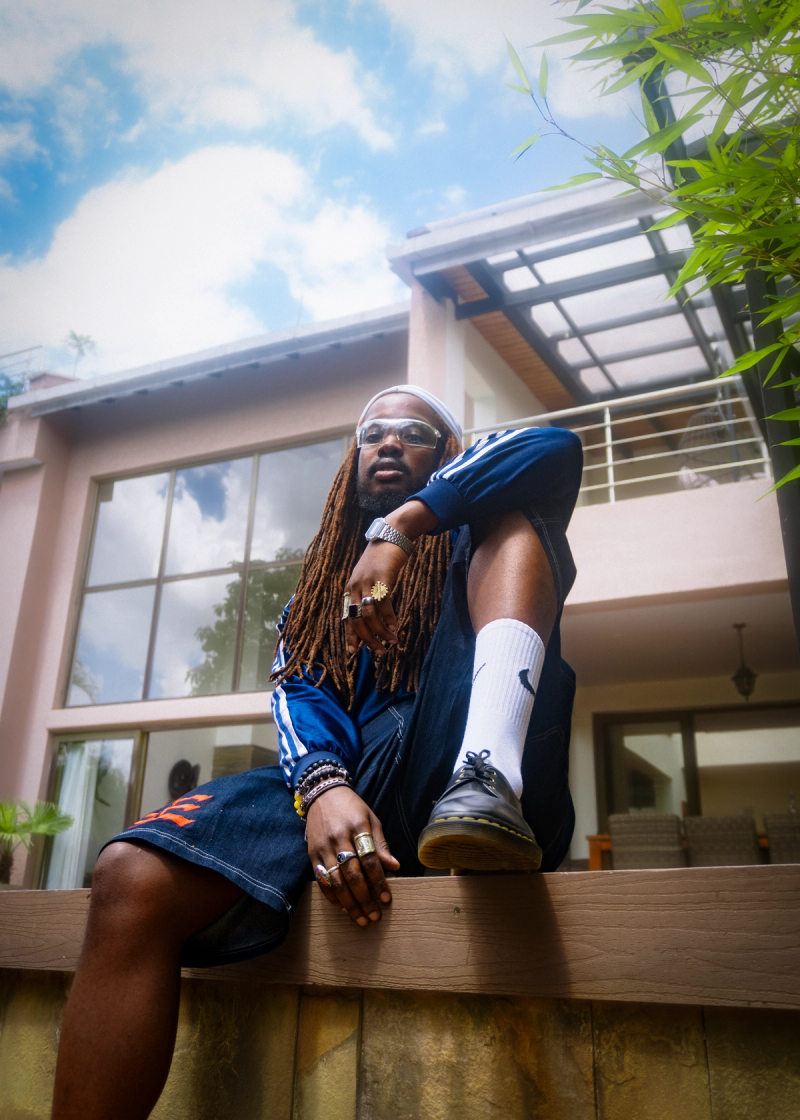
Debbie: That's nice, yeah, you and Theo are quite the duo.You recently dropped two songs, ‘silly’ and ‘what's all this then’? And personally I’d say very good soup. I'm telling you, we bump these songs every day. So for the music videos for those and others like ‘fly’, do you direct the visuals and what's your approach to visuals storytelling as a musical artist?
Mau: ‘whats all this then’ was co-directed with HiHi. For ‘fly’ it was just me directing. Over time, what I've learned with music videos specifically, because I do come from a filmmaking background, is that if you focus on a certain idea to help convey whatever already exists, then that's most of the work done. It doesn't have to be elaborate. Like for ‘fly’ we actually, you know, had a project. We had styling, we had a cast exactly like cast production. We had a whole rehearsal.
With ‘what’s all this then’ it was just me and Theo in London. We didn't have any video connects at that point so we just went with two of our friends and got the costumes out. We figured out our fits and went around doing absurd things. It was one of those things where we knew what kind of energy, vibe and tone we wanted to create and shot it on the fly. It was very low budget. One of the beautiful things about music videos is that it doesn't always have to be a big production.
Debbie:Especially when you already have the idea. Somebody else would think there's a whole production crew co-ordinating all these absurd things but it's just you and your two friends. That's what makes it really interesting. Yeah, so let's talk more about ‘what’s all this then’, because you’re rapping about some real serious stuff. What sparks is and how does it set the tone for the upcoming album?
Mau : When Theo and I work sometimes it'll be like, do you have a concept in mind? Do you have a sound that you like to work with? Like ‘fly’, for example, that day I'd been listening to a lot of high life and so I wanted something that gave me the same feeling.
But with ‘what's with all this then’ he played me two beats. I liked parts of both but I couldn't tell which one I liked more. The guitar section from ‘what’s all this then’ was on a different beat and the drums were on something else and I was like, yo, could you try to put these two together? As soon as he did he was like, okay, yeah, this is this is it. It works perfectly and it's super simple. It’s very much the kind of hip hop that we both love. Its simplicity is what allows for there to be more dynamic songwriting for me. Actually, a lot of it was a good stream of consciousness and that's one of my favorite things to do. One of my other favorite songs I've made is called ‘Haba na Haba’ which is literally a very long verse. It had no chorus.
With ‘what’s all this then’, I was living in London and I was in a bit of an existential place where I was, as the chorus suggests, questioning everything and wondering what's happening and what I'm feeling. At the same time there was something kind of light about that day in particular where despite my questioning, things didn't feel too dark. The hook then came together mad quickly, which is what I love about it too because it was such a funny phrase that I’d have loved to use in a song and it just happened to work that day.
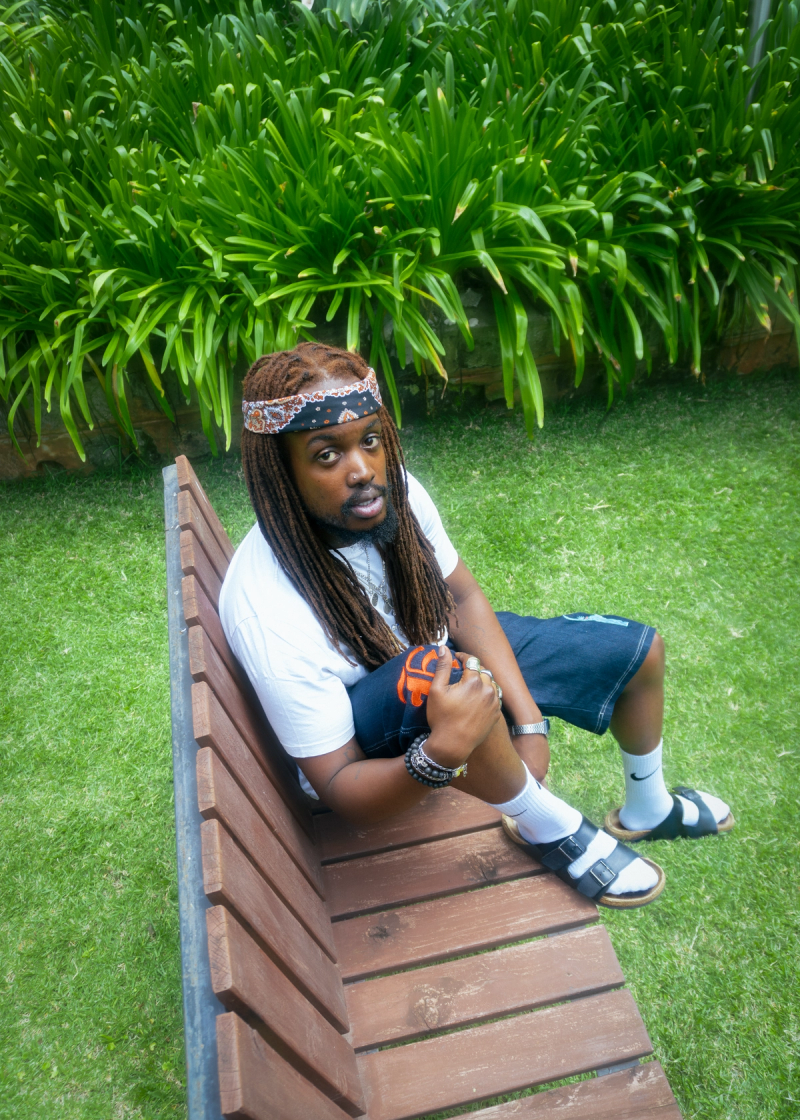
Debbie: You guys are basically sorcerers in the studio.
I'd like for you to chat a bit about the upcoming album as a full body of work. What's the angle and what do you expect us the listeners to feel once we reach the final track?
Mau: I would say the album is very true to its name PRESSURE. It's really just about the build up of tension and emotion that happens as you shift from your twenties into your thirties. You're navigating a lot of things for the first time while existing in a time that fucking intense. There's such a heavy sense of despair with everything that's happening and I think at the same time, there's this urgency of like, oh, I have to keep moving. I have to do better. I have to improve. I have to figure things out. A lot of the music was reflecting that because I had just moved back to London which is a beautiful city but moves at such a fast pace. It’s also quite an intense space when you're not grounded, which I really wasn't at that point.
If you never feel grounded in yourself, your practices and community, it can feel like you're not enough and you need to pick up the pace. This time, rather than let my music be a space for people to come and find relief from life, which has always been my goal, I realised that what draws people to my music and has them stay is my vulnerability about how beautiful and difficult life is.
There's a combination of songs where I'm talking about accepting and trusting the process and others about very, very heavy life things that I went through at the same time. I’m also feeling liberated and excited by, well not by the pressure, but by the fact that I'm in this space that has a lot of momentum and a lot of energy.
I think what I want my listeners to feel is that entire spectrum. Hints of my foundations as an artist, my hip-hop influences and how it feels to navigate my twenties. By the end I want them to feel seen and held but also, just a bit more gentle with themselves.
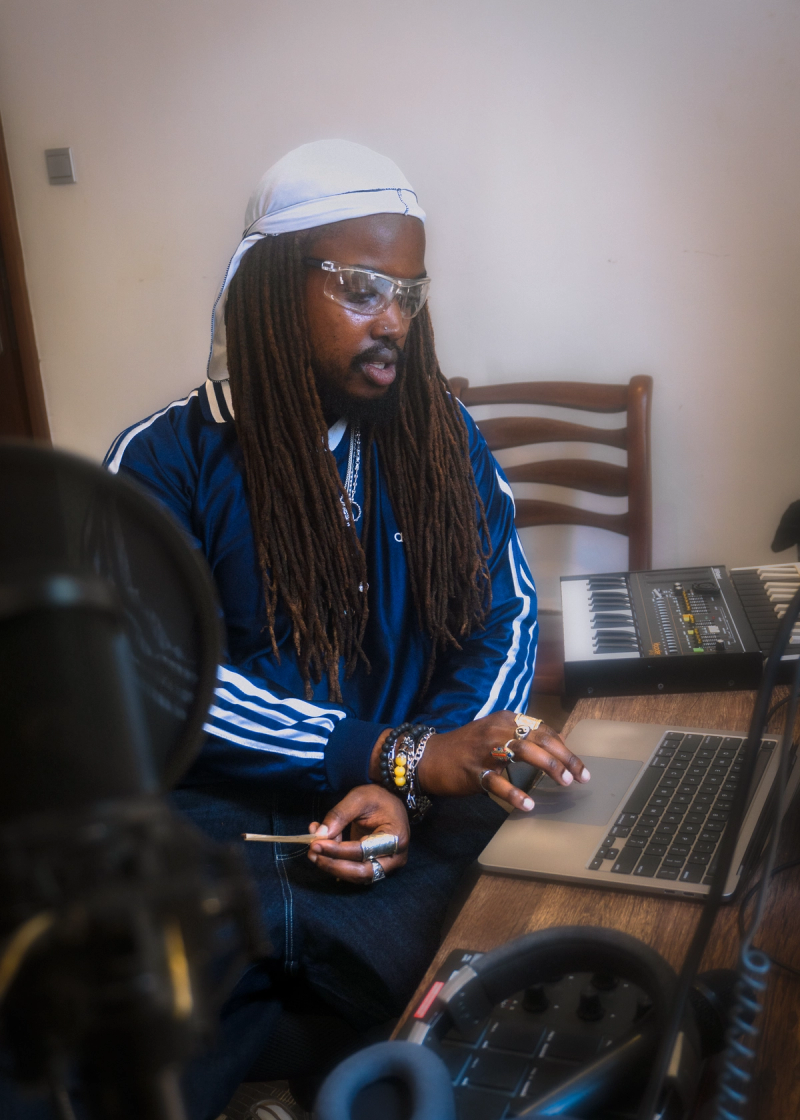
Debbie : I don't know if you want to answer this question, but what’s your favorite track on the entire album that’s not a single?
Mau : I’ve fluctuated so much because it’s like choosing your favourite child. Of late though, the one that’s been most impactful for me is the first track ‘Here We Are Again.
For some of the songs … well, I'd say half Theo made in the studio when I was there and another half were ideas that I was playing around with. I had worked on some beats and recorded some stuff but I always felt like as much as I am a good producer, Theo has this ability to expand a sound as far as it can go. It’s actually what I admire most and what I'd been looking for in a collaborator. So he took that beat and didn't add a crazy amount, but really opened it up like as far as its musicality, as far as, um how dynamic it is and and so I think that was one thing I was just like mad grateful for. It was like having this song that I on the way back from like therapy and I was just having one of those moments of like, you know, like how much is going on, so much is unclear, but like, you know, here I am right now, um and I I was just kind of reflecting on it all. Um, it was one of those balcony moments where like, nothing is fixed, but you just have perspective and so it was nicely documented and I think it encapsulates the album really well. um yeah.
Debbie :That's nice. That's nice to hear.
As a British-Kenyan artist, how do the different locations that you live in shape your creative thought and your process as an artist?
Mau: Both spaces inspire me and speak to different parts of me in an interesting way. For Nairobi because of, you know, the pacing, the culture, the flow, it’s a lot more free and loose in many ways and that allows me to enter into a lot of different pockets and sounds.
It's funny because I think some of the music people know me most for is alte R&B and it's like that's the kind of shit where like if I never had gone back to Nairobi I wouldn’t be making. If I had stayed in New York, I think I would maybe have taken a lot of time to get there because my mind was like, you know, as much as I love this music, I don't know if I can see myself in that space. It's definitely a part of me and I think it was working with artists like Lukorito, Maya and LU*
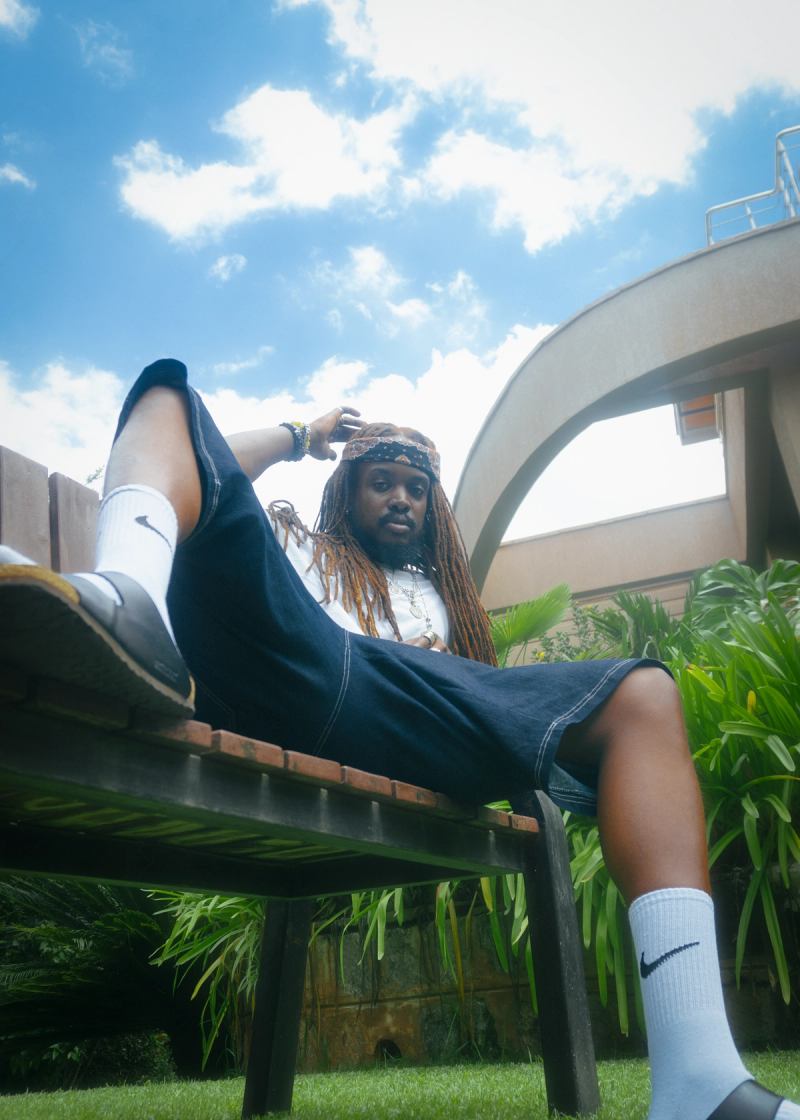
Debbie(interjects):I love your collaborations with Maya, they're my favorite, honestly
Mau: Yeah me too she’s incredible. It was funny because we met when I was still in New York and we would work on music and send ideas back and forth. I think we were both definitely navigating our becoming as artists, like decided where we wanted to sit sonically so it was a great gateway for me into my melodic side.
The thing we all love about Nairobi is that it can also get out of hand sometimes, you know? The energy is new and free; its the same energy that makes life here feel spontaneous. In contrast, London feels very different. It’s a much larger city and melting point with many different sounds and experiments happening all the time
Another cool thing about Nairobi is the strong sense of community and grounding. London, on the other hand, lets you just blend in. A lot of my early listening was indie and rock bands from the UK. One of my all-time favourite’s is Bloc Party who were formed in London and have a very alternative experimental side that feels easier to tap into in London because the city has more space for it and it’s in the fibre of the country.
London’s melting pot also connects me to other styles and parts of the diaspora. A lot of the hip hop and R&B I love is made by Black British Artists who bring with them a wealth of culture from wherever they're coming from. There’s a strong culture there, and the intensity of the city has a way of showing you what you’re made of. It pushes me, and keeps pushing me, to be a better artist because the competition is real.
I'm grateful to even have the privilege to engage with that. For most Kenyans, travel and creation are hard. That awareness shapes how I work now. London exposes me to so many different inspirations that I feel less tied to any one genre. When I’m there, I can just make everything—garage, indie, whatever—and that freedom is something I really value.
Debbie:That's amazing, that's awesome, and actually, it's good that even previously you had mentioned people like Maya, the people who you've collaborated with because my next question is how important is community and collaboration and how do these aspects differ in both cities in which ways can artists come through for each other?
Mau: As far as collaboration goes it’s a huge part of my practice. It’s where I draw a lot of inspiration and strength.
When I first started making music in New York, I noticed something interesting. Film school—where I came from—is a very competitive place. I got tired of the energy of walking into a space and feeling like everyone was sizing you up. It’s funny because film is one of the most inherently collaborative mediums. You can do a lot by yourself, but making a film usually requires a crew, actors, and multiple departments working together.
In fact, the reason I got into music at first was because I wanted to make something completely on my own for a change. But the more I made music, the more people I met, and the more I started collaborating, I realized how beautiful it is to create with others not just because it’s easier, but because it’s better. Everything gets elevated when more people get involved.
Initially, I didn’t plan to return straight after university. I was going to try to extend my visa. But it was during COVID, Trump was in power, and the visa situation looked grim. We even had workshops where people explained our post-graduation options, and I remember them basically saying, “Yo, guys, it’s long. It’s not looking good!”
I was really trying to like to stay for a bit. I was in a relationship, figuring things out but New York in heavy lockdown was stifling. I couldn’t go outside. I was making content, but I felt trapped. My visa was valid until around October, but by August I called my family and told them that being here is expensive for you guys, it's expensive for me and it makes more sense if I come home on my own terms than wait to be kicked out.
The first year back was tough. My music had some traction, so some people knew me, but I didn’t have many close friends except Maya, who’s been one of my best friends for a long time. It wasn’t until late 2020 into 2021 that I started meeting more people.
One of our friends had a house his parents built that was sitting empty, so he turned it into a studio. He knew all the XPRSO. guys, so they moved their gear in, and suddenly we had this creative hub. I met some of them through my friend Junior, and he told Maya and me to come through. A lot of us were feeling lost then—we had just graduated, unsure of our next steps—and we started making music together and hanging out.
That house became the centre of so much. A large part of the alternative scene at the time—me, Maya, XPRSO., Lukorito—our music was made there. We’d jump on each other’s tracks, and some people even lived there for a while. Lanzi, when he first came to Nairobi, stayed there. Others would just pass through.
It evolved in a wild way. My friend who owned the spot is a videographer and filmmaker, and he started booking freelance shoots there. They even shot a Spotify campaign in that house. By the end, it wasn’t just us anymore, it was Boutross, Brooklyn Boyz, all kinds of artists coming through.
That’s where I really began to engage with people who are still my closest friends and collaborators. That period led to songs like ‘Sweeta’ with Mauimoon and pushed me toward my more “alte” sound.
Now, being in London is interesting because I’m rebuilding that sense of community almost from scratch. But that’s exciting, too. You never know what influences people will bring or how much you can grow from them.
Debbie:That's cool. That is really insightful. And yeah, that's the thing like artists coming through for each other, building community. That's very, very important especially for us as archivists of the culture; it's one of our core tenets. Our second last question is, how would you describe the current Independent music scene, the independent music scene in Kenya and greater East Africa, maybe? Are we at the brink of change or is it only getting louder at the moment?
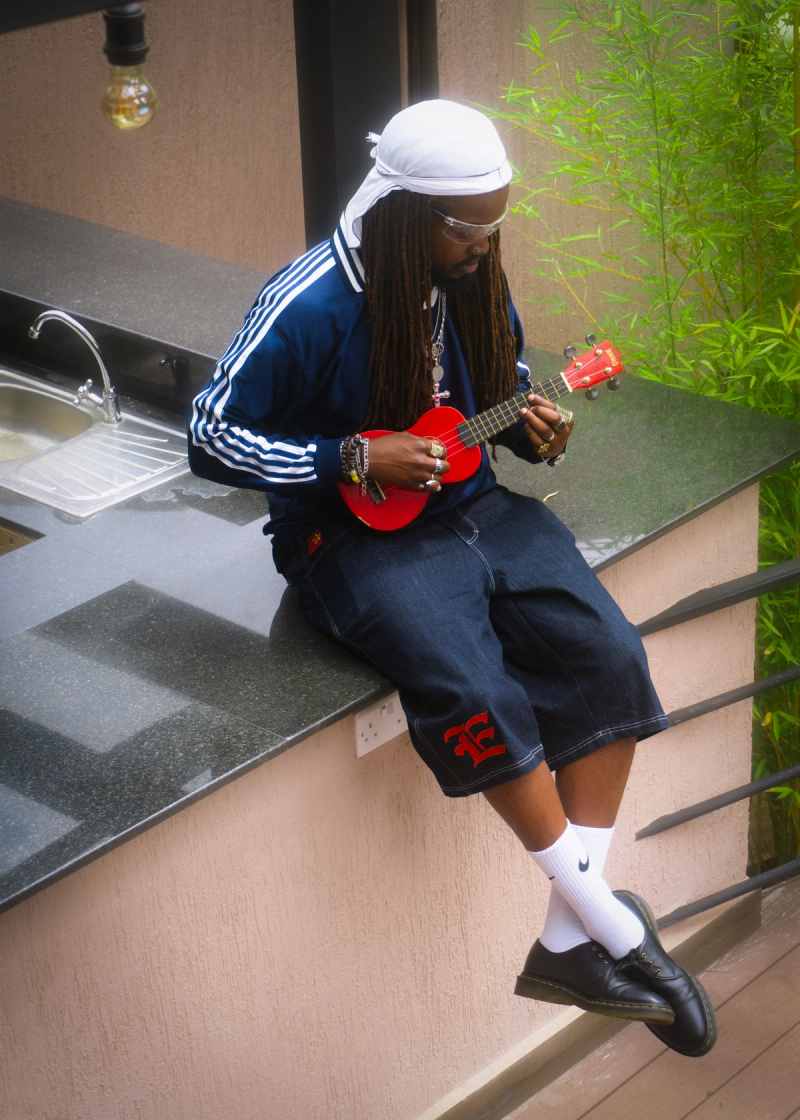
Mau : I would definitely say that we are on the brink of change. It is a really interesting time because one thing I really love and admire about us as a people and culture is that there is not a lot of waiting. Maybe in the past it was more about fear, or even culturally, or in terms of the support and access that people had to resources. Not only to make the music, but also to create the infrastructure needed to distribute, to engage with it, and to commercialize it.
I think we are now watching this beautiful thing happen. I was talking about it with Lanzi. He did Tangaza with Monica. Monica started Tangaza and brought him in. I remember that time I was just getting into music and realizing how the scene was shifting. The industry was also going through a shift in New York. A very big blog era was ending, and things were moving to something new. I was seeing a couple of blogs and platforms pop up in Nairobi and in East Africa. Tangaza was one of the first I saw that felt intentional and serious. Seeing how much it evolved was inspiring.
Now there are other entities like WhoWhatWhere magazine, Friends of the Artist, and other people who are documenting what is happening. That is history. We did not have that in the earlier pioneer days. Before I even made music, before university, there was a magazine called Up Magazine that covered the alternative music scene in Kenya. They would host events, like one at the train yard and museum and like I remember that was the first time I saw Blinky performing. I was like 18 years old and it was super inspiring because I was just like oh shit, this is a homegrown thing.
Right now everyone is doing their thing. The one factor that will make the difference is how much we help each other, how much we cross-collaborate. The sad reality is that, for now, a lot of the resources—financial, exposure, connections—still come from abroad and trickle down. We have an abundance of talent, but the channels for artists to develop and make a living are limited.
Being an artist in Nairobi is already hard. We do not have a touring infrastructure in the same way. We do not have established live venues in the same way. DJs are in a better place, but for live shows it is tough. In London, you can go to multiple venues within one area. There are five different spots for someone to perform if they are releasing an album, and in the summer there are festivals for every genre. I feel like right now in Kenya, there are many opportunities, more than other parts of East Africa, but there is a disconnect. There is the market that can pay for music, which is small because the economy is hard, and there are the artists who need to sustainably grow audiences. Right now it often feels like we are scrapping to make things happen. Even when it comes to my shows, it is a thing of like, I'm finding the venue and I'm finding the sound … like we're really scrapping it together versus being able to plug in and play.
I do see positive change. Artists starting to release music now have more options. There are independent venues like Shelter, The Mist, and Zahabu. There are platforms like Tangaza and other entities that help with publicity and connecting artists. The biggest part is community. Spaces like The Mall are a perfect example. Skaters made it into a hub that connected different parts of Kenya’s art scene across mediums. Having spaces to meet, develop, and share ideas makes the work less isolated than it used to be.
One thing I hope for as we grow is that we do not get too focused on appearances. Nairobi is hyper-visible, and our culture places a lot of emphasis on aesthetics. My only fear is that sometimes people focus more on being seen than on doing the work. If we stay in scarcity mode and chase visibility over quality, that will hold us back. We cannot sacrifice the art itself for the scene or the image. We don't need to copy what Nigeria, Ghana, or South Africa are doing. Like our thing is good enough. People will speak on the Kenyan music industry and be like, why can't we be like Nigeria? And I'm just like, dog, England is a smaller country than Kenya. You could not say that there's an English sound.
Our strength is that you can go to a show and hear drill, R&B, and other genres all in one place. That is the superpower. We just need patience and to keep the art first. Over time, if the art is good, people will find it.
Debbie: Yes people will always find it, that's very true. So now we are closing up with a final question so you can give us your final words. As WhoWhatWhere in what ways do you think we can contribute to the growth and well being of artists like yourself here in Kenya?
Mau : I would say, obviously there are the direct ways, and we have spoken about some of them. Things like workshops, free events, mixers, or other accessible spaces.
Honestly, in the truest sense, we need to disseminate resources as much as we can. I think what I have seen sometimes, which does break my heart, is that a lot of things that start out organically to help artists end up getting pulled into flexing or the corporate side of things. They become more about looking established and doing the thing, instead of actually doing the work of platforming artists who do not have a platform.
As much as it is amazing to feature an artist everyone already knows, I think what people can really benefit from is coming to a place like the WhoWhatWhere Magazine page and finding an artist they have never heard of. Having a place where they feel seen and supported, whether in a journalistic sense or through performance opportunities, is so valuable.
It is always a bit of a toss-up when you are starting out as a platform, because you also need to grow in a way that attracts people to your work. But the cool thing is that people do respect WhoWhatWhere Magazine. The writing is good, the brand and aesthetic are really strong, and you have the kind of access that a lot of artists would benefit from.
Championing those who are doing different things is a big ask, but it matters. At the end of the day, you are curious and you are tastemakers. The tastemakers I respect are the ones who do not just remind people about something that is already cool. They show you something new, and you trust their taste enough to give it a go.
There is a lot of freedom to explore other genres. Amazing things are happening in Kenyan rock and metal, and that is a very cool, radical space. So I would say, keep an open mind and make sure you do not forget the little guys and the people starting out. I always say that artists remember the ones who were checking for them when no one else was.
Debbie: Absolutely it's all about them. Even the greatest person was once an underdog. I can imagine. Like when you're starting out it's already a difficult thing, especially in a country like can you just decide that your artwork is going to be who you are and it's going to be your career. So having that support from the start, yeah, that's one thing I can say is where we hundred percent want to push to do more of. And yeah, thank you so much for sitting down with me for this chat. Good talk.